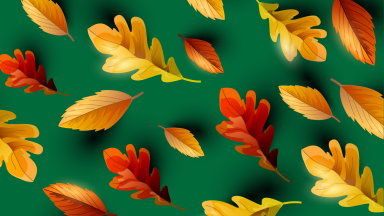Jump To:
How about leaving the fallen leaves on the ground instead of raking and bagging them for pickup? This provides natural mulch to enrich the soil and suppress weeds. It can retain soil moisture, and offer crucial habitat for wildlife such as insects, pollinators, and birds. By leaving the leaves, you can help reduce pollution and flooding; and provide natural benefits for plants and soil. It can also save you time (and money). A win-win!
